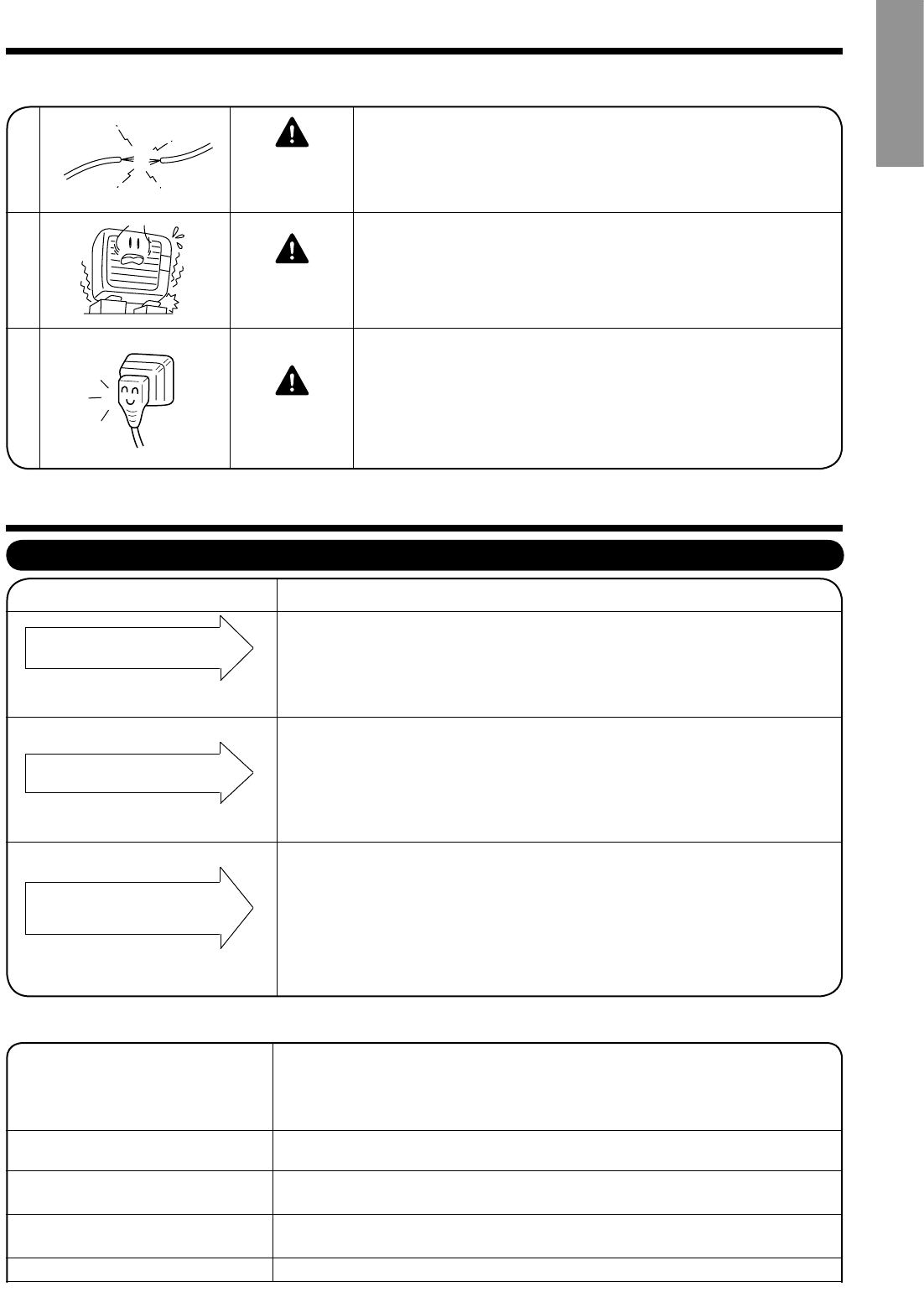
– 19 –
ENGLISH
DEUTSCHFRANÇAISITALIANOSPANISHPORTUGUÊS
∂ÏÏËÓÈο
РУССКИЙ
REGULAR INSPECTION
PLEASE CHECK THE FOLLOWING POINTS EVERY EITHER HALF YEARLY OR YEARLY. CONTACT YOUR
SALES AGENT SHOULD YOU NEED ANY HELP.
1
2
3
Check to see if the unit’s earth line has been connected
correctly.
If the earth line is disconnected or faulty, unit failure or electric
shock hazard may result.
Check to see if the mounting frame has rusted excessively
or if the outdoor unit has tilted or become unstable.
It could collapse or fall, causing injury.
CONDITION CHECK THE FOLLOWING POINTS
• Do the batteries need replacement?
• Is the polarity of the inserted batteries correct?
• Is the air filter blocked with dust?
• Is the set temperature suitable?
• Have the top and bottom air deflectors been adjusted to their correct
positions according to the operation mode selected?
• Are the air inlets or air outlets of indoor and outdoor units blocked?
• Is the fan speed “LOW”?
WARNING
WARNING
AFTER SALES SERVICE AND WARRANTY
• Is the fuse all right?
• Is the voltage extremely high or low?
• Is the circuit breaker “ON”?
• Is the power plug inserted?
• Do you have any power cut?
When it does not operate.
When it does not cool well.
When it does not heat well.
The following phenomena do not indicate unit failure.
<Operation start>
The unit is preparing to blow warm air. Please wait.
<In operation>
The outdoor unit is defrosting. Please wait.
Hissing or fizzy sounds Refrigerant flow noise in the pipe or valve sound generated when flow rate is
adjusted.
Squeaking noise
Noise generated when the unit expands or contracts due to temperature
changes.
Rustling noise Noise generated with the indoor unit fan’s rpm changing such as operation start
times.
Clicking noise Noise of the motorized valve when the unit is switched on.
During heating, the operation indicator
blinks and air blow stops
If the remote controller is not
transmitting a signal.
(Remote controller display is
dim or blank.)
WHEN ASKING FOR SERVICE, CHECK THE FOLLOWING POINTS.
WARNING
Check to see if the power plug is securely inserted
into the wall socket.
If the power plug is not inserted into the wall socket securely,
it will become hot and an electric shock or fire may occured. If
dust or dirt is found on the power plug, clean the plug and insert
it into the wall socket.


















